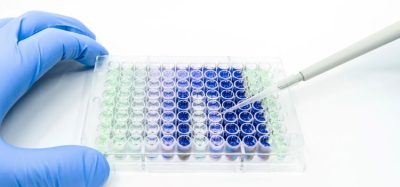EU marketing authorisation granted for rheumatoid arthritis treatment
Posted: 27 November 2019 | Rachael Harper (European Pharmaceutical Review) | No comments yet
Remsima SC™ is the world’s first subcutaneous formulation of infliximab and has been approved in the EU for the treatment of people with rheumatoid arthritis.


The European Commission (EC) has approved Remsima SC™ (CT-P13 SC, biosimilar infliximab) for patients with rheumatoid arthritis (RA).
Remsima SC, which is manufactured by Celltrion, Inc, is the world’s first subcutaneous formulation of infliximab and is approved in the EU for the treatment of people with RA in combination with methotrexate (MTX).
The treatment is for adult patients with active RA when the response to disease-modifying anti-rheumatic drugs (DMARDs), including MTX, has been inadequate; and in adult patients with severe, active and progressive disease not previously treated with MTX or other DMARDs.
By having the option to be injected by patients themselves, Remsima SC has the potential to significantly reduce hospital visits, as well as save time normally required for hospital-administered IV treatment, Celltrion has said.
“The approval of Remsima SC in Europe gives patients the opportunity to administer the treatment themselves as an injection, giving them more control over their own treatment,” said Professor Rene Westhovens, Rheumatologist at the University Hospitals KU Leuven, Belgium.
The approval is based on clinical evidence including results from a study that showed switching people with RA from the intravenous (IV) formulation to the subcutaneous (SC) formulation of CT-P13 treatment at week 30 was comparable to maintaining CT-P13 SC up to week 54 (up to week 64 for safety profile).
“Remsima SC has been shown to have a stable potency and patients with RA on Remsima SC develop fewer anti-drug antibodies – which can improve the effectiveness of a treatment – compared with those on CT-P13 IV,” Westhovens continued.
Celltrion has submitted a further variation to the marketing authorisation of Remsima SC to extend the indication to inflammatory bowel disease, the approval decision of which is expected in mid-2020. It has also applied for patent protection for the treatment until 2038 in approximately 100 countries throughout the US, Europe and Asia.
Related topics
Biosimilars, Clinical Trials, Drug Markets, Formulation, Regulation & Legislation, Research & Development (R&D)









